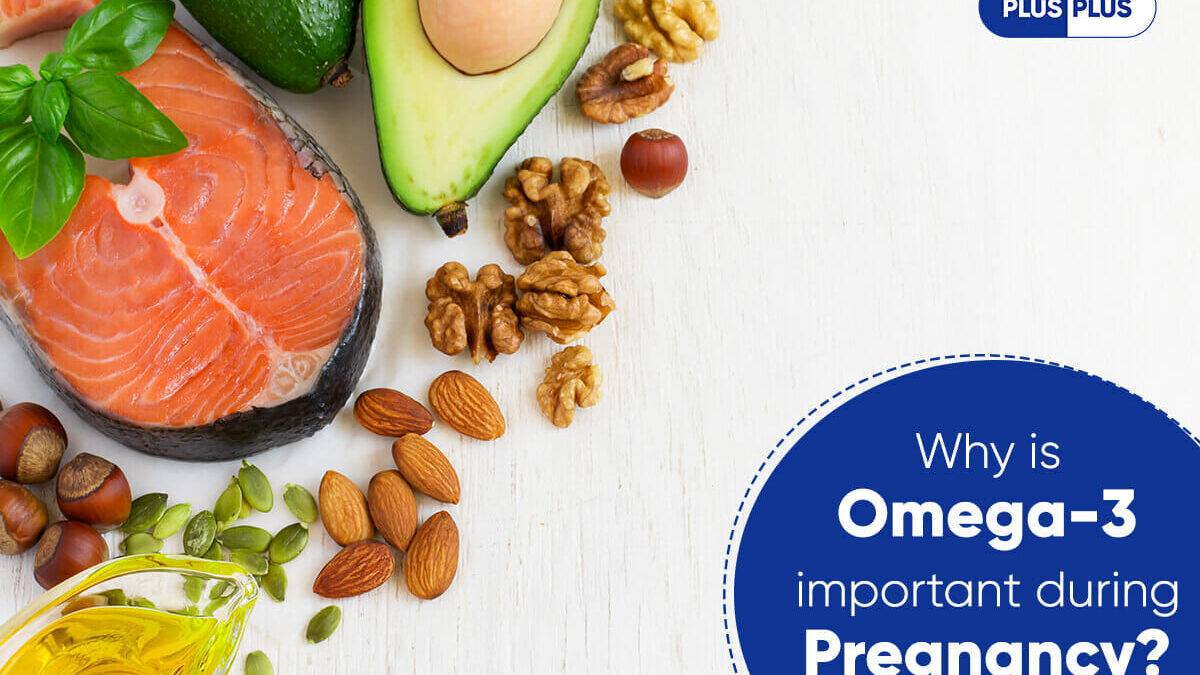As a soon-to-be mother, you want to ensure that you give your baby the best possible start. One essential nutrient that is often overlooked is omega-3 fatty acids. These essential fatty acids play a crucial role in the development of your baby’s brain and overall health. In this blog post, we will explore the importance of omega-3 during pregnancy, the different types of omega-3, and how to ensure you are getting enough of this vital nutrient.
What are omega-3 fatty acids?
Omega-3 fatty acids are a type of polyunsaturated fatty acid that our bodies cannot produce on their own. There are three main types of omega-3s: eicosapentaenoic acid (EPA), docosahexaenoic acid (DHA), and alpha-linolenic acid (ALA). EPA and DHA are found primarily in fatty fish such as salmon, sardines, and anchovies, while ALA is found in plant-based sources such as flaxseed, chia seeds, and walnuts.
Benefits of omega-3 for baby’s brain development
The role of DHA in brain development: DHA makes up a large percentage of the brain’s gray matter and is essential for the formation of neural connections. Adequate intake of DHA during pregnancy and breastfeeding has been linked to improved cognitive development, visual acuity, and neural development in infants. Research on omega-3 and cognitive development: Adequate intake of omega-3 during pregnancy has been linked to improved cognitive development, visual acuity, and neural development in infants. Additionally, research suggests that omega-3 may also reduce the risk of developmental disorders such as autism and ADHD. Studies have also shown that children of mothers who have higher levels of omega-3 during pregnancy have improved problem-solving abilities and attention.
How to get enough omega-3 during pregnancy
- Recommended daily intake: The recommended daily intake of omega-3 during pregnancy is between 200-300mg per day.
- Foods high in omega-3: To ensure you are getting enough, aim to include a variety of omega-3-rich foods in your diet, such as fatty fish, flaxseed, chia seeds, and walnuts.
- Fish consumption during pregnancy: It’s important to note that some types of fish may contain high levels of mercury, so it’s important to consult with your doctor about which types of fish are safe to eat during pregnancy. The American College of Obstetricians and Gynaecologists recommends that pregnant women consume at least 8-12 ounces of fish per week but should avoid species high in mercury.
- Trimacare™ Prenatal Multivitamins: If you are unable to get enough from your diet alone, speak with your doctor about taking a high-quality omega-3 supplement.
Perks of Taking Trimacare™ During Pregnancy
Trimacare™ Prenatal Multivitamins is a specially formulated supplement that provides expectant mothers with a wide range of essential nutrients to support the healthy development of their unborn child. One of the key components of this supplement is omega-3 fatty acids.
Omega-3 fatty acids, which are found in fish oil, are essential for the proper development of the brain and eyes in a growing foetus. These fatty acids also help to reduce the risk of premature birth and low birth weight.
The human body cannot produce omega-3 fatty acids on its own, which is why it is so important for pregnant women to get enough of these essential nutrients through their diet or through supplements like Trimacare™. These fatty acids are critical for the healthy development of the brain and eyes, and they also play a role in the formation of the nervous system.
In addition to providing omega-3 fatty acids, Trimacare™ Prenatal Multivitamins also contain other essential nutrients like folic acid, iron, and calcium, which are important for the healthy development of the mother and the baby.
Overall, Trimacare™ Prenatal Multivitamins are an essential supplement for any expectant mother. Its omega-3 fatty acids, provide the necessary and essential nutrition for the healthy development of the unborn child. It’s important for pregnant women to pay attention to their dietary needs and consider taking prenatal multivitamins like Trimacare™ to ensure that they are getting all the essential nutrients they need for themselves and their babies.
Risks associated with Omega-3
- Mercury levels in fish: As mentioned, some types of fish contain high levels of mercury, which can be harmful to both mother and baby. It’s essential to consult with your doctor about which types of fish are safe to eat during pregnancy.
- Overdose of omega-3 supplements: Taking high doses of omega-3 supplements can cause side effects such as nausea, diarrhoea, and fishy burps. It’s important to follow the recommended dosage on the supplement label and consult with your doctor before taking any supplements.
In conclusion, omega-3s are essential for both mother’s and baby’s health during pregnancy. Adequate intake of omega-3s can lead to improved cognitive and neural development in babies and may reduce the risk of developmental disorders. It’s important for pregnant women to include a variety of omega-3-rich foods in their diet, such as fatty fish, flaxseed, chia seeds, and walnuts. If you are unable to get enough from your diet alone, speak with your doctor about taking a high-quality omega-3 supplement. However, it’s also important to be aware of the risks associated with omega-3, such as mercury levels in fish and potential side effects from taking prenatal supplements. Always consult with your doctor before making any changes to your diet or supplement regimen during pregnancy.
In addition, Omega-3 fatty acids have been linked with the reduction of depression and anxiety symptoms in pregnant women. It’s also important to note that pregnant women should consult with their doctor before taking any supplements, and it’s always best to get the recommended amount of omega-3s through a healthy diet.
In summary, omega-3 fatty acids are a vital nutrient for both mother and baby’s health during pregnancy and should be included in a healthy diet. It’s essential to consult with a doctor before making any changes to the diet or supplement regimen and to be aware of the risks associated with high levels of mercury in some types of fish and the potential side effects of supplements.
Source url – https://medium.com/@shahp6613/omega-3-the-missing-nutrient-in-your-pregnancy-diet-24cae522d5d2


